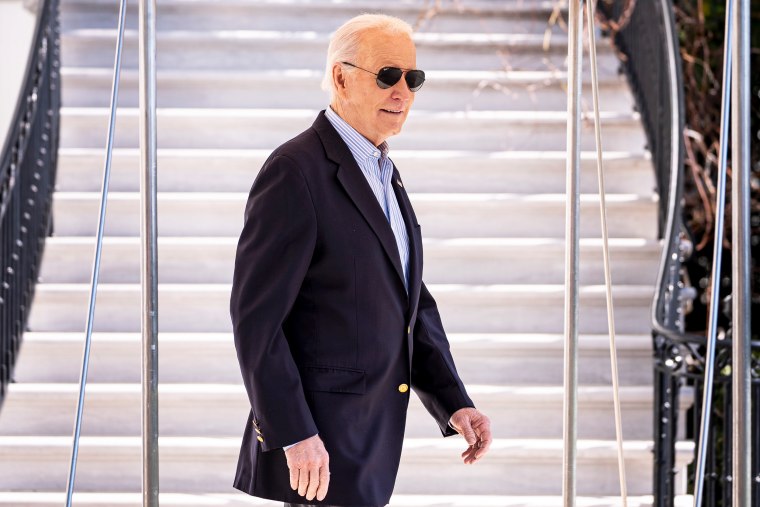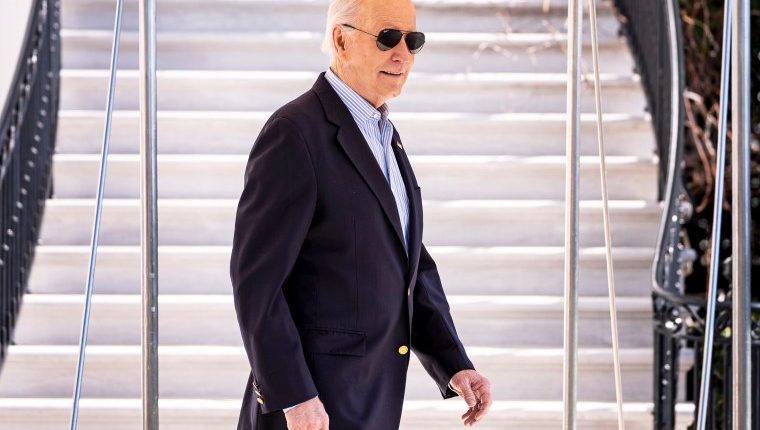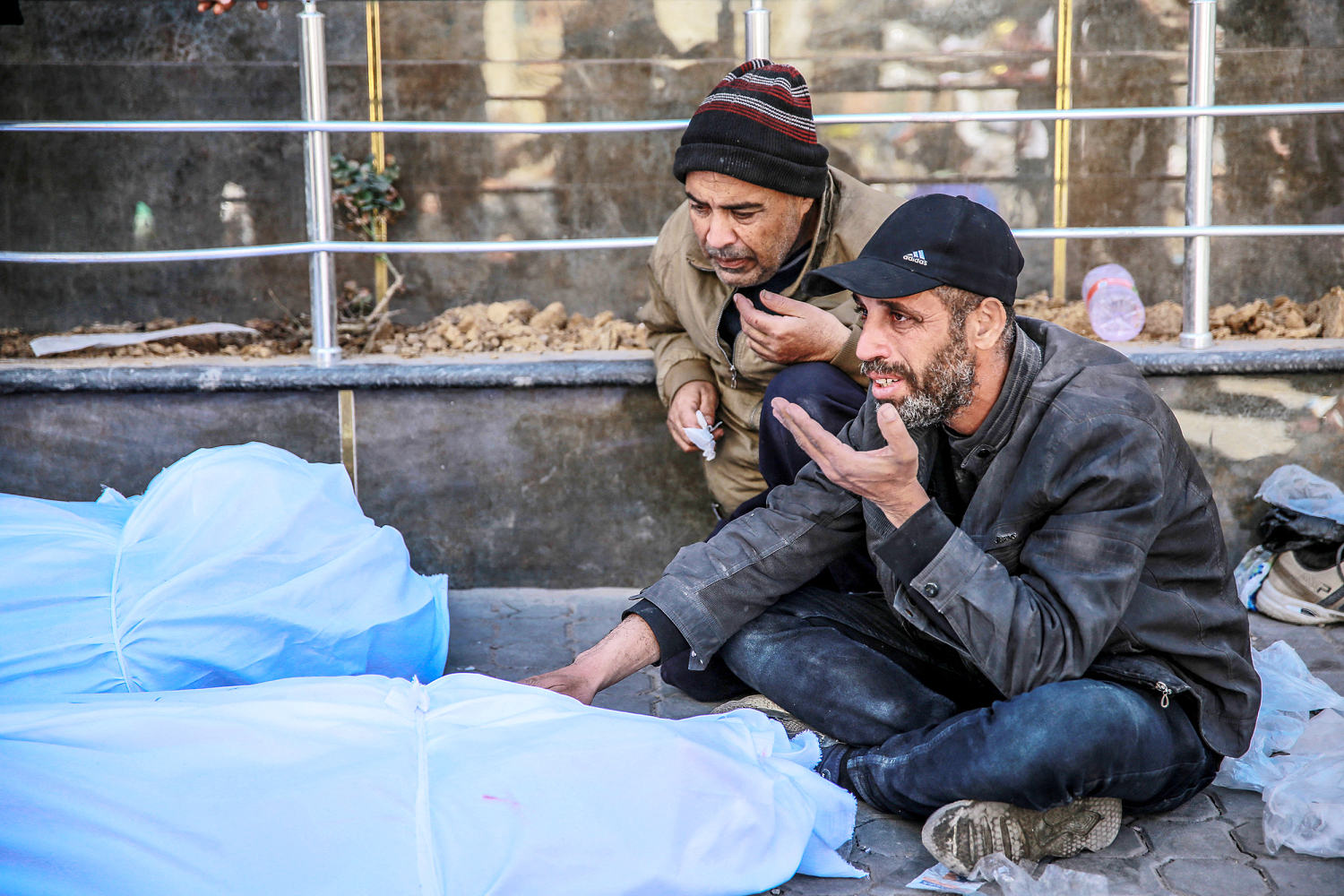The Biden administration is trying to salvage cease-fire negotiations after dozens of Palestinians were reportedly killed by Israeli forces while waiting in line for humanitarian aid in Gaza, according to multiple U.S. officials. Privately, administration officials expressed grave concern that negotiations on a deal to secure the release of hostages held by Hamas and a temporary pause in Israel’s military assault on the Gaza Strip could stall.
Administration officials — from President Joe Biden and Secretary of State Antony Blinken on down — made calls Thursday to their counterparts in capitals across the Middle East to try to salvage negotiations. But there was a growing sense of pessimism in the White House about a deal that Biden recently said was close could be finalized, one official said.
At the same time, administration officials tried to put a measured public face on the crisis, wary of overreacting at a delicate moment — and a potential inflection point in the war. The aid convoy deaths came on the same day that the Hamas-run Gaza Health Ministry announced that the Palestinian death toll in the war had passed 30,000.
Biden is desperate for a deal that would pause the violence in Gaza as he faces rising frustration with the Israeli government’s approach to the conflict and widespread pressure at home, as he campaigns for re-election, and from U.S. allies overseas.
At the same time, the president remains unwilling to make any major shifts in his policy toward Israel, including placing conditions on aid to Israel as some Democrats suggest, officials say.
White House officials said Thursday the administration had asked the Israeli government to investigate the attack in Gaza and provide more information on what led to the deaths.
Asked whether U.S. officials are putting their full faith in Israel or would attempt to investigate the event independently, one source familiar with the Biden administration’s discussions told NBC News that beyond the request to Israel, there’s not much more the U.S. can do because of limited assets and personnel on the ground to gather information.
Biden spoke by telephone Thursday with the leaders of Qatar and Egypt, who have played central roles in the negotiations. The calls were pre-scheduled about hostage deal negotiations and not in response to the deadly incident in Gaza, according to a senior administration official. The White House has not announced any upcoming presidential conversation with Israeli Prime Minister Benjamin Netanyahu.
One U.S. official said there is “no question” the deaths of Palestinian civilians Thursday leads to an even worse breakdown of trust between the parties at the negotiating table. Biden acknowledged as much, telling reporters he “knows” it will deeply complicate the talks.
Administration officials spent much of Thursday trying to determine the extent of the damage to talks, which they said would now be conducted remotely after weeks of in-person negotiations. They also privately expressed doubt that Israel would provide a full accounting of what took place.
Administration officials have held multiple high-level meetings in recent weeks to discuss possible policy moves that might incentivize Israel to change course in Gaza, according to two senior U.S. officials. The discussions have included punitive measures such as withholding or delaying weaponry sales to Israel or scaling back U.S. intelligence sharing, which some Democrats have privately pressed the president to do.

The meetings, some of which have been led by national security adviser Jake Sullivan, also included a review of incentives such as offering to bolster Israel’s air defenses and intervene with U.S. allies to gain more international support for Israel as it continues its military campaign in Gaza, the officials said.
Some of the president’s Democratic allies hoped Biden’s standing among voters in battleground states like Michigan might convince him to make policy changes toward Israel. But so far, the president has resisted making changes, and officials said they don’t expect that to change as long as a deal to release hostages held by Hamas in exchange for a temporary cease-fire is possible.
Biden has privately told some Democrats that he’s not sure withholding weaponry from Israel would be effective because while Israel wants more military aid, it doesn’t need it, according to a person familiar with his comments.
Defense Secretary Lloyd Austin was asked Thursday during a congressional hearing whether he would stop sending weapons to Israel if it defies U.S. warnings and launches a ground invasion into Rafah, and he said that would be a decision for the president.
Israel has asked the U.S. for more Hellfire missiles but officials say the administration has been reluctant to provide them. The U.S. did approve Israel buying 3,000 Hellfire missiles in 2015, but it has asked for more in recent months, according to a senior administration official and a congressional official.
Hellfires are air-to-ground precision guided missiles that can be fired from helicopters and other aircraft.
While Biden has also said that he’s working desperately to achieve a temporary pause in Israel’s military offensive in Gaza, he’s also expressed concern about alienating his Jewish supporters by appearing to waver on his unconditional backing of the Jewish state.
“You don’t want to send a mixed signal that they’re going to turn their backs on Israel,” said one Democratic donor who’s heard the president’s private comments.
Some administration officials believe Israel will hold off on a ground invasion into Rafah until at least several weeks, in part because many of Israel’s resources are focused elsewhere in Gaza. But as of Thursday, the U.S. still has not received the IDF plans for a military operation into Rafah or its strategy for evacuating the more than 1 million civilians sheltering there. U.S. officials have made clear to Israel they want to see the plans before the ground invasion begins, according to administration officials.
The U.S. does not believe a large-scale ground invasion is imminent, and sources familiar with the latest intelligence on the ground in Rafah said the IDF has not moved ground troops or equipment to the area to signal an incursion is close.
As scenes in Gaza underscore how desperate Palestinians are for food, the Biden administration has been considering in recent days military air drops to get aid to Palestinians in Gaza. But officials concede the most direct option for aid is still through a hostage deal and temporary cease-fire that allows trucks through border crossings into Gaza.
One administration official told NBC News that the timing for a potential decision on air drops is still unclear. The person said that air drops can be logistically challenging and that dropping aid in the intended location is difficult. There are also no guarantee who would pick it up or if air drops would spark chaos on the ground.
At the same time, United Nation officials warn that 1 in 4 of the roughly 1 million people in Gaza — approximately 250,000 people —are close to famine.
Source: | This article originally belongs to Nbcnews.com










